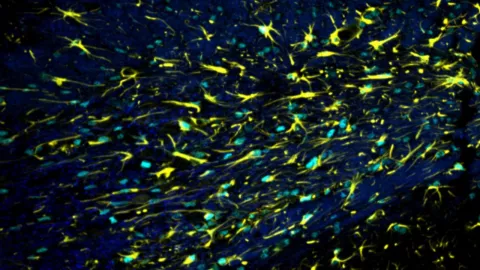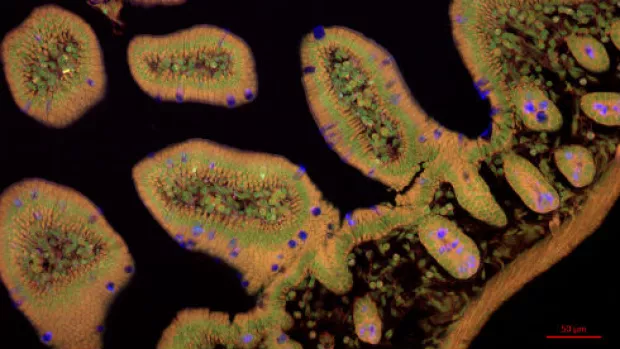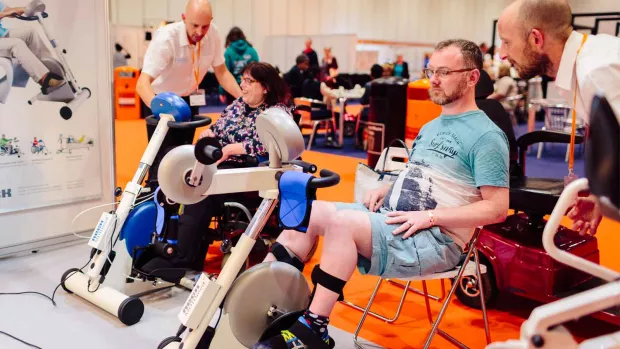
Bacteria in our gut could instruct brain cells to fight inflammation
A recent study published in the journal Nature showed that a cell in the brain, called an astrocyte, can be triggered by our gut bacteria to fight inflammation. We caught up with Dr Michael Wheeler and Dr Liliana Sanmarco from Harvard University in the US about their findings.
Why were you looking at astrocytes?
Michael: “My background is in neuroscience, so I work on brain cells. Astrocytes are support cells – they help nerve cells to function. This means they could be important in MS, where nerve cells get damaged and even die.”
Liliana: “And I specialise in the immune system. You find astrocytes in the protective layers surrounding the brain, which makes them pretty unique, because they can talk to immune cells in the blood supply as well as nerve cells.”
And what did you find?
Liliana: “We identified a subset of astrocytes that produce a type of anti-inflammatory molecule. These molecules can kill immune cells. Specifically, they target a type of immune cell - T cells - that we know attack myelin in MS. So then we wanted to know how this happens. Is there some kind of mediator that triggers this process?
Michael: “And this investigation took us to the gut. We already knew bacteria living in our gut are crucial for controlling how these sorts of toxic molecules get released. The bacteria give instructions to special messenger cells, which carry the instructions to the astrocytes.”
So was the gut involved?
Michael: “Yes. First, we looked at mice that lacked gut bacteria. And we found that when gut bacteria were missing, all the inflammation-reducing features of astrocytes went away. If we put the gut bacteria back, the astrocytes start killing immune cells again.”
Liliana: “You can also shine a UV light on a mouse and it turns the cells there into different colours. And when we shined this light on the gut, we found the messenger cells had circulated all the way from the gut up to the meninges, a thin layer that covers the brain.”
What happens in MS?
Liliana: “We looked at data from people with MS and found this subset of astrocytes doesn’t seem to be doing their job properly. The messenger cells that travel up from the gut seem to be decreased in MS. But they function better after some MS treatments, like beta interferon.
Michael: “It’s a bit of a vicious cycle. MS inflammation stops this mechanism working, which then causes more inflammation.”
Could this lead to new treatments?
Liliana: “The next step could be to develop a probiotic, to make sure people with MS have the right bacteria their gut.
Unfortunately, you couldn’t just go and buy a probiotic from the supermarket, because it would need to be designed to target the right species of bacteria. And when we talk about gut bacteria, we’re talking about billions and billions of microorganisms. So it’s not trivial to identify the specific species that’s responsible.
Michael: “Another option could be to create a vehicle that delivers drugs to the meninges that would specifically target astrocytes to help them turn on this programme”.



